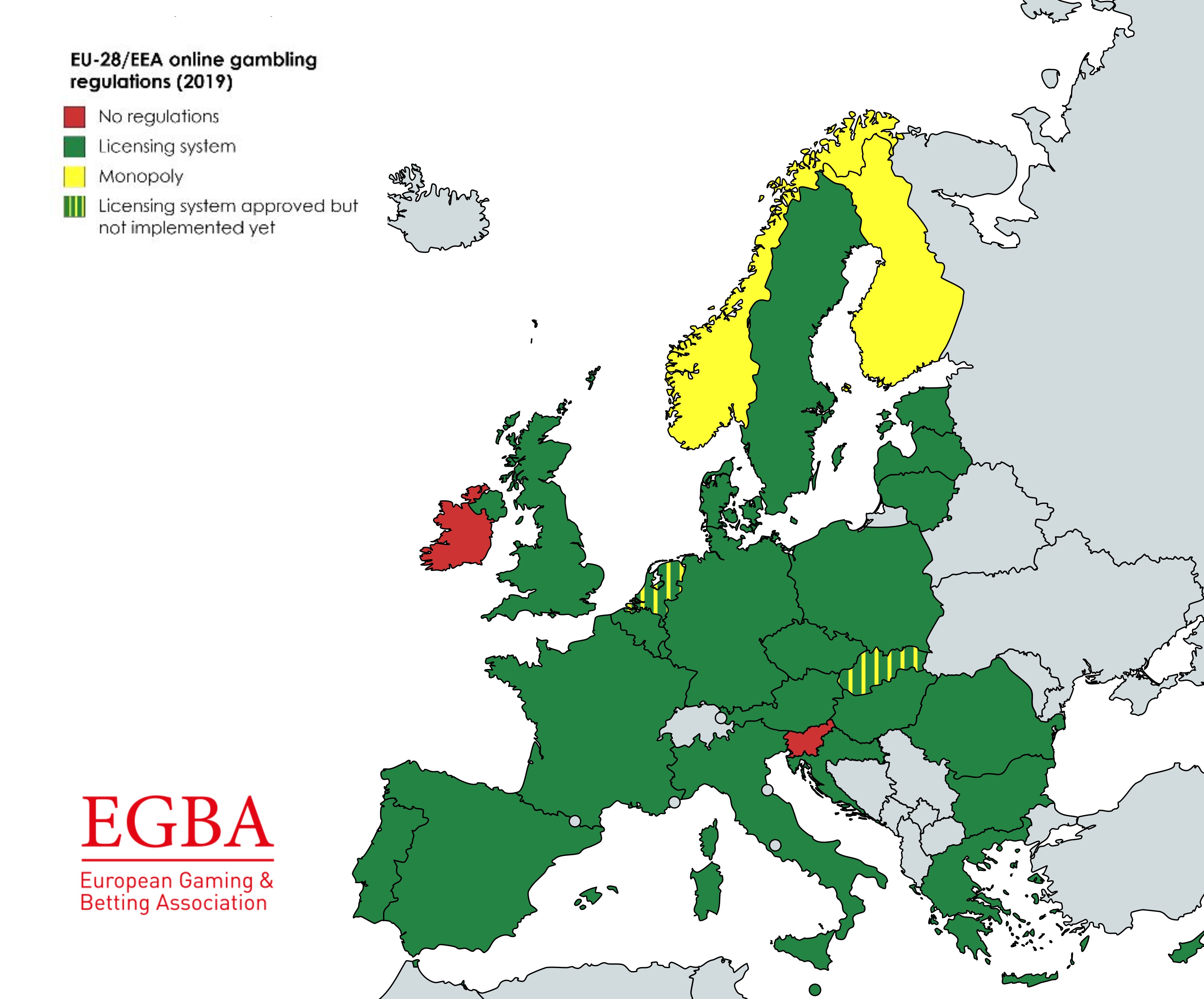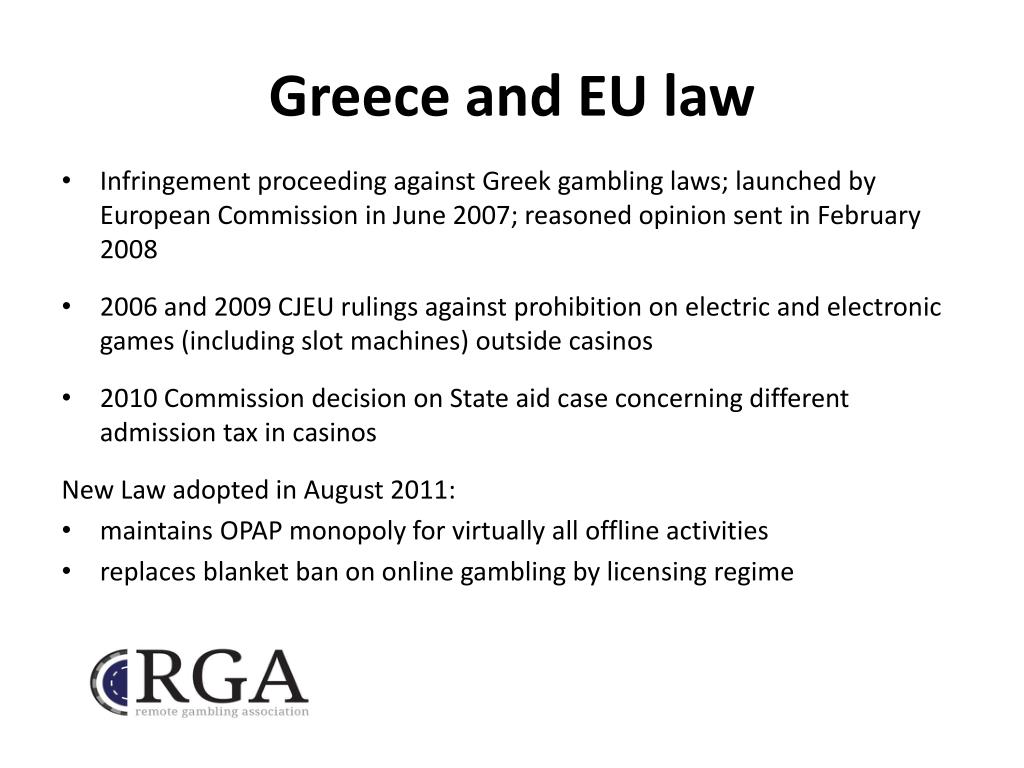Eu Gambling Case Law
Gambling case law European Commission work in the field of online gambling services The Commission supports EU countries’ efforts to modernise their national online gambling legal frameworks, in particular in the framework of administrative cooperation between gambling regulatory authorities. Unfortunately, the idea of creating new EU gambling laws is probably low on the list of priorities. The EGBA is making a compelling case, though. The fact that nearly every European country has its own set of online gambling laws makes it a very difficult industry to regulate. If the EU Parliament created new laws that all gaming companies. European Union Law, Gambling, and Sport Betting: European Court of Justice Jurisprudence, Member States Case Law, and Policy Anastasios Kaburakis It is the mark of an inexperienced man not to believe in luck. —Joseph Conrad Fortune knocks at every man’s door once in a lifetime, but in a good many cases the man is in a neighbouring saloon.
By Valentina Pop
The EU's top court on Tuesday ruled that national governments can uphold domestic restrictions on online gambling and ban foreign websites if the intention is to stop fraud and crime.
In a case brought by Austrian online betting provider Bwin against the Portuguese state lottery, the European Court of Justice (ECJ) ruled that the state monopoly's restrictions 'may be regarded as justified by the objective of combating fraud and crime.'
Read and decide
Become an expert on Europe
Get instant access to all articles — and 20 years of archives. 14-day free trial.
Choose your plan
... or subscribe as a group
20th anniversary
We celebrate 20 years of independent, expert news on Europe. Become an expert on Europe yourself.
Why join?
Watch our editor-in-chief Koert Debeuf explain the reasons in this 30-second video.
The ruling is a setback for online gambling groups, which have been pushing for an EU-wide open market in this field.
Portugal's gambling authority had fined a subsidiary of Bwin €74,500 for concluding a sponsorship deal with a Portuguese football league, which breached the nation's exclusive gambling rights.
Bwin challenged the fine in court, arguing that Portugal is discriminating against private companies and goes too far in trying to control the risk of gambling addiction.
Stock markets reacted promptly on Tuesday, with shares of Bwin, one of Europe's biggest internet bookmakers, dropping more than five percent on the news.
Its legal ramifications may also impact the European Commission's current policy proposals, as well as ongoing competition cases against member states such as France, Germany and Austria over protective measures towards their domestic monopolies.
'We will study the ruling in detail and adapt the policies accordingly, if necessary,' Oliver Drewes, a spokesman for the commission told this website.

He added that the commission's policy had always been that this was an area which fell under the competence of national governments, provided that the EU principles were respected.
European state lotteries hailed the decision as a 'great victory' and a 'heavy blow for the commercial gambling industry.'
'As of today, there is no longer any hope for an unregulated gambling market that has no borders and is oriented solely towards the profits of illegal providers,' Erwin Horak, head of the Bavarian state lottery said in a statement.
The London-based Remote Gambling Association, representing the world's largest online gambling companies, expressed its 'disappointment' at the ECJ ruling, which allows the Portuguese monopoly to 'eliminate competition and limit consumer choice.'
RGA noted that the ruling was based on the specific situation in Portugal and the regulations in other member states may still violate EU law.
Eu Gambling Case Lawyers
EU parliament against online gambling
Efforts to create a single EU-wide market for online gambling were also rejected by the European Parliament earlier this year. In March, the bloc's legislative voted by a large majority against such a move, while branding the sector a risk factor in fraud and addiction.
'Online gambling provides increased opportunities for corrupt practices such as fraud, match fixing, illegal betting cartels and money-laundering, as online games can be set up and dismantled very rapidly and as a result of the proliferation of offshore operators,' the parliament said.
Between 1996 and 2008, the online gambling industry generated over €15.6 billion in revenue worldwide. European Parliament studies indicate the sector is growing by between eight percent (Austria) and 17 percent (Italy) a year in the EU, even as other industries shrink amid the economic downturn.

, your membership gives you access to all of our stories. We highly appreciate your support and value your feedback. If you have any thoughts on this story, we would love to hear it.
Eu Gambling Case Laws
